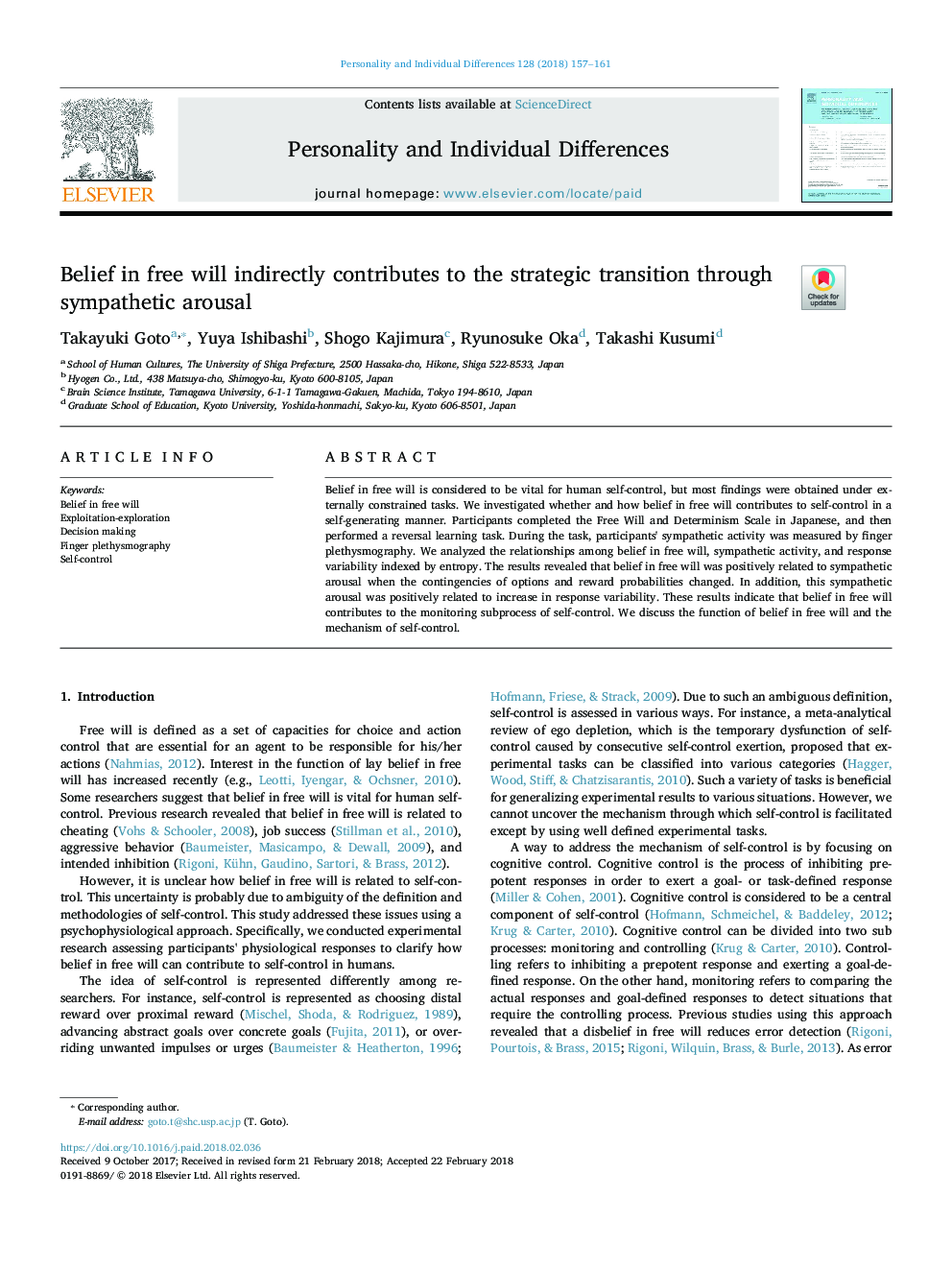| Article ID | Journal | Published Year | Pages | File Type |
|---|---|---|---|---|
| 7248843 | Personality and Individual Differences | 2018 | 5 Pages |
Abstract
Belief in free will is considered to be vital for human self-control, but most findings were obtained under externally constrained tasks. We investigated whether and how belief in free will contributes to self-control in a self-generating manner. Participants completed the Free Will and Determinism Scale in Japanese, and then performed a reversal learning task. During the task, participants' sympathetic activity was measured by finger plethysmography. We analyzed the relationships among belief in free will, sympathetic activity, and response variability indexed by entropy. The results revealed that belief in free will was positively related to sympathetic arousal when the contingencies of options and reward probabilities changed. In addition, this sympathetic arousal was positively related to increase in response variability. These results indicate that belief in free will contributes to the monitoring subprocess of self-control. We discuss the function of belief in free will and the mechanism of self-control.
Keywords
Related Topics
Life Sciences
Neuroscience
Behavioral Neuroscience
Authors
Takayuki Goto, Yuya Ishibashi, Shogo Kajimura, Ryunosuke Oka, Takashi Kusumi,
